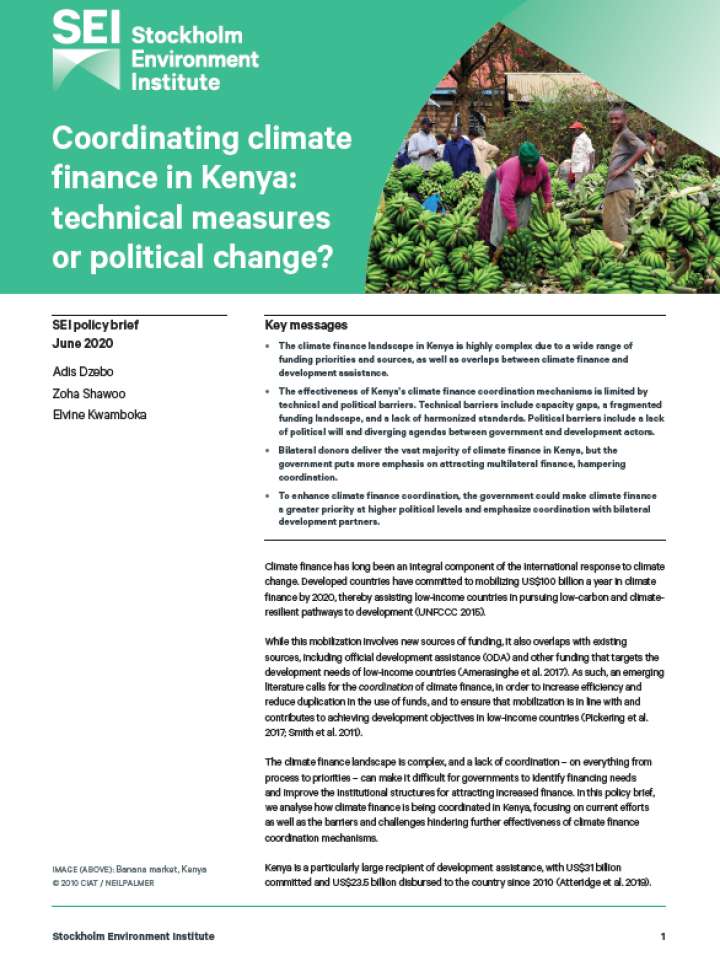Coordinating climate finance in Kenya: technical measures or political change?
This policy brief analyses how climate finance is being coordinated in Kenya, focusing on current efforts as well as the barriers and challenges hindering further effectiveness of climate finance coordination mechanisms. The authors assessed Kenya’s climate finance coordination through a combination of policy analysis and interviews with key stakeholders within the country’s climate finance landscape.
This brief makes the following policy recommendations:
- Climate change and climate finance should be made a priority at higher political levels to ensure that the existing coordination structures are applied and enforced.
- Development partners in Kenya should ensure that their actions are in line with the priorities of the government and reflect national needs. This could be done through development partners engaging with governmental actors in the conception stages of project development and implementation.
- The Kenyan government needs to equally prioritize bilateral and multilateral climate finance, such as through ensuring that bilateral finance is tracked and utilizing existing coordination working groups in.
- As coordination barriers are inherently political, improving coordination will inevitably mean that most actors will have to compromise on some of their priorities.
Explore further
